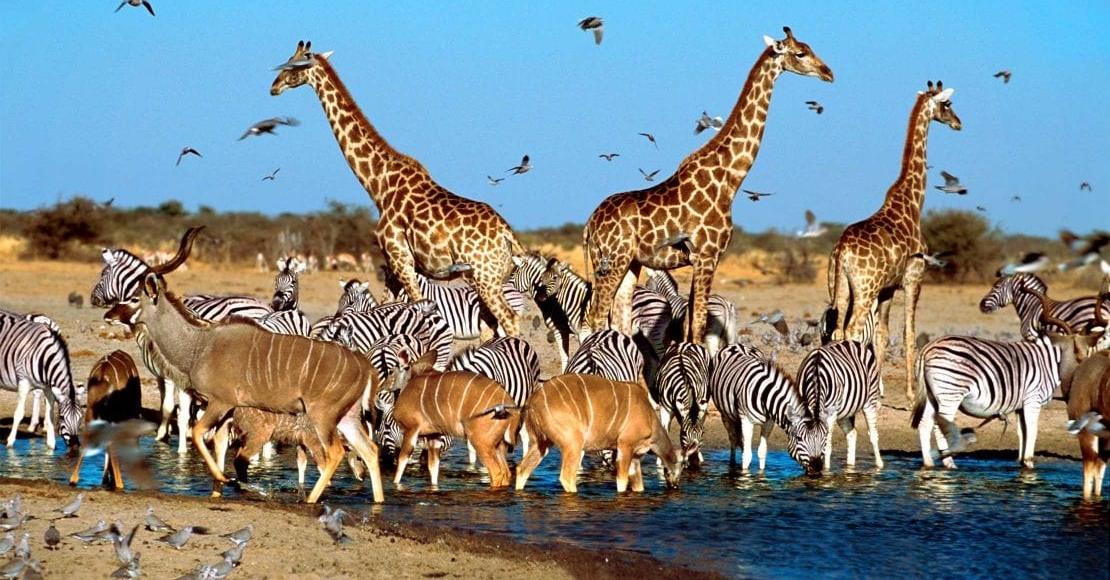Are you curious to know what is a game reserve? You have come to the right place as I am going to tell you everything about a game reserve in a very simple explanation. Without further discussion let’s begin to know what is a game reserve?
Nestled across diverse landscapes around the world, game reserves stand as sanctuaries of biodiversity, showcasing the splendor of wildlife and the wonders of nature. These protected areas play a pivotal role in conservation efforts while offering visitors an immersive experience in the heart of untamed wilderness. Let’s embark on a journey to understand what game reserves are, their significance, and the enriching experiences they offer.
What Is A Game Reserve?
A game reserve is a designated area of land set aside for the conservation and protection of wildlife, flora, and fauna. Unlike national parks, game reserves often have a primary focus on preserving and managing specific species of animals and their habitats. These reserves serve as safe havens where wildlife can thrive undisturbed by human activities, providing a glimpse into the natural behavior and ecosystems of various species.
Purpose And Significance
- Conservation of Biodiversity: Game reserves are instrumental in safeguarding diverse ecosystems and preserving the natural habitats of numerous species, including endangered or vulnerable animals.
- Promotion of Ecotourism: Visitors to game reserves have the opportunity to experience wildlife in their natural environment, fostering a deeper appreciation for nature and raising awareness about conservation efforts.
- Research and Education: These reserves serve as living laboratories for scientists, researchers, and conservationists, allowing for studies on animal behavior, habitat dynamics, and ecosystem health. They also offer educational opportunities for visitors to learn about wildlife and conservation efforts.
Features And Activities
- Rich Biodiversity: Game reserves boast a wide array of wildlife, from majestic elephants, lions, and rhinos to diverse bird species and smaller mammals, showcasing the interconnectedness of various ecosystems.
- Safari Experiences: Visitors can embark on guided safaris—either by vehicle, foot, or sometimes boat—to observe wildlife in their natural habitats, offering opportunities for up-close encounters and stunning wildlife photography.
- Lodges and Accommodations: Many game reserves offer accommodations ranging from luxurious lodges to rustic campsites, providing a chance to immerse oneself in nature while enjoying comfort and convenience.
- Conservation Programs: Some game reserves actively engage in conservation initiatives, such as breeding programs for endangered species, anti-poaching efforts, and habitat restoration projects.
To Find Out About Such Things Follow On AndActivate.
Examples Of Notable Game Reserves
- Maasai Mara National Reserve (Kenya): Known for its annual wildebeest migration, offering exceptional wildlife viewing opportunities.
- Kruger National Park (South Africa): One of Africa’s largest game reserves, renowned for its diverse wildlife, including the Big Five (lion, leopard, rhinoceros, elephant, and Cape buffalo).
- Ranthambore National Park (India): Home to Bengal tigers, offering a unique opportunity to spot these majestic creatures in the wild.
Conclusion
Game reserves stand as beacons of conservation, preserving the intricate tapestry of life and providing invaluable experiences for nature enthusiasts and wildlife aficionados. By nurturing these protected areas, we not only safeguard biodiversity but also cultivate a deeper understanding and appreciation for the natural world. Whether it’s the thrill of spotting a lion on the prowl or marveling at the graceful movements of a giraffe, game reserves offer an unforgettable journey into the heart of untamed wilderness.
FAQ
What Is The Difference Between A Game Park And A Game Reserve?
It’s quite a simple difference but one that can have a big effect on your experience. A national park is owned and managed by the government, whereas a private game reserve is owned and managed by the lodges within it. The biggest benefit of staying in a private reserve is exclusivity.
Why Is It Called A Game Reserve?
Game reserves offer terrains, sightings and experiences that are very different from what you’d expect in a national park. The term “game” has its origins in hunting, and while some reserves do allow hunting there are many who have chosen not to support this activity.
What Happens At Game Reserves?
In a game reserve, ecosystems are protected and conservation is usually key. Indigenous wildlife in its natural habitat help in providing an environment where growth in numbers at a natural rate can occur.
Do Game Reserves Allow Hunting?
Game preserves (also known as game reserves, or wildlife refuges) are a type of protected area in which hunting of certain species of animals is not allowed, although other kinds of resource harvesting may be permitted.
I Have Covered All The Following Queries And Topics In The Above Article
What Is A Private Game Reserve
What Is A Game Reserve In Africa
What Is A Game Reserve?
What Is A Game Reserve In South Africa
What Is A Game Reserve Used For
Difference Between Game Reserve And National Park
Examples Of Game Reserve
Importance Of Game Reserve
What Is A Game Park
Difference Between Game Reserve And Sanctuary
What Is A Game Reserve In Africa
Disadvantages Of Game Reserves
What Is A Game Reserve
